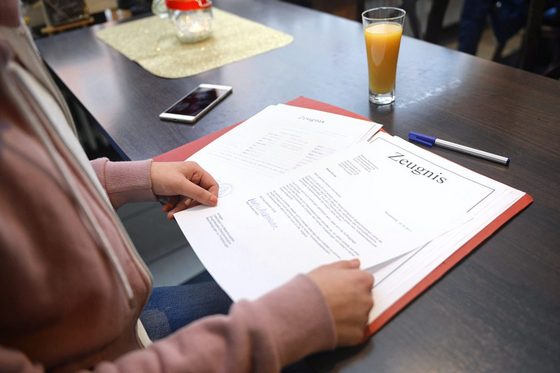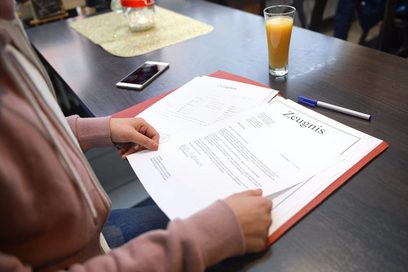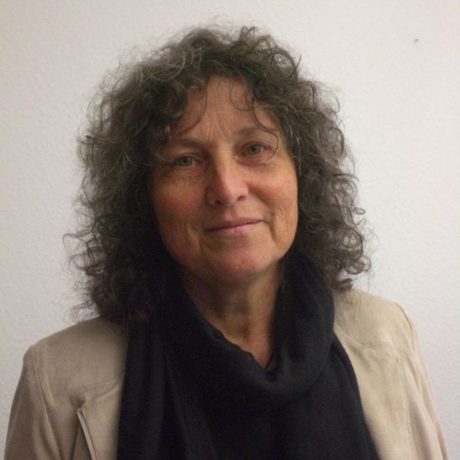Petra Kourukmas
Foto: privat
Have you found a course of study or an apprenticeship occupation which is of interest to you? If so, then you should apply for it! To do this, though, it is necessary for you to provide certificates of your qualifications which prove your suitability. Petra Kourukmas, consultant at the Central Office for Foreign Education of the Conference of the Ministers of Education and Cultural Affairs, responds to questions about the recognition of qualifications from foreign countries.


abi» Ms Kourukmas, whom should I contact if I want my qualifications to be recognised?
Petra Kourukmas: In Germany, various bodies are responsible for the recognition of professional or educational qualifications. The universities themselves decide on the possible admission. If you don’t know whom to approach, you are welcome to send us an email – also in English, Arabic or Ukrainian – and a scanned copy of your particular certificate. The email address is zab@kmk.org.
abi» How do you decide on the value of my qualification?
Petra Kourukmas: We don’t decide, we advise the responsible bodies, and we orient our decisions to the education system of the country from which the qualifications originate. For example, if you are from Syria and have a high school leaving certificate for the sciences, it means that you can study for a degree in any subject in that field. For medicine and other highly sought-after degrees, however, you have to have a very high grade point average. The same applies here in Germany. If you have a high school leaving certificate for the literary sciences, however, you can only study for a degree in the fields of social sciences, humanities or law – just as in Syria.
abi» Can I enroll at a university straight away as soon as I find out about my qualifications?
Petra Kourukmas: First, you have to decide on the university at which you want to study. On the homepage of the university, you can find out if you should apply directly there or via Uni-Assist, the central work and service centre for international study applicants in Germany, and whether you need to have your certificates translated for this purpose.
abi» The university entrance certificate alone isn’t of any use to me if I can’t speak German, though ...
Petra Kourukmas: That’s why you have to learn the language, and preferably start at the accommodation for refugees. The Federal Employment Agency or the Federal Office for Migration and Refugees (BAMF) arrange language courses. Many universities offer their own intensive German courses. You also need German language skills to be admitted to a foundation course.
abi» What is a foundation course?
Petra Kourukmas: A foundation course, or Studienkolleg, prepares international applicants for a degree course if the education they received in their country of origin was not sufficient. On the foundation course, you attend classes in subjects such as maths or biology – depending on your future degree. You also learn German. The advantage is that the German classes are directly related to your future degree. After you have completed the foundation course, you take a university qualification exam. If you pass this, you have the right to study for a degree.
abi» What can I do if I am told that the qualifications I gained in my home country don’t allow me to study at a university in Germany?
Petra Kourukmas: You can study for the university entrance qualification via the second chance educational path, at specialist evening classes, or foundation courses, for example. It is also possible to do so at certain vocational colleges. Alternatively, you can decide to embark on an apprenticeship instead. Seek advice, just like Germans who haven’t yet made their mind up about which career path they want to take.
abi» What is the situation regarding language skills?
Petra Kourukmas: That also differs. In the IT industry, for example, you can find a lot of work if you only have English, but at vocational college you have to know German. Many vocational colleges offer additional language courses for non-Germans.
abi» What happens if I wasn’t able to bring my qualification certificates with me or they were lost on my journey to Germany?
Petra Kourukmas: In this case, the university will have to assess your qualifications in a different way. This takes place in three stages: Firstly, you have to have a residence permit, secondly, your previous education must be considered credible and, thirdly, you may also have to prove what you already know. If someone says they studied civil engineering, for example, they should be able to draw a design plan. However, the universities ultimately decide this.
In the Anabin database (in German), you can find out how educational qualifications acquired abroad are assessed in Germany. The search is carried out via “Schulabschlüsse mit Hochschulzugang” (School-leaving certificates which provide university access). You can select your country of origin in the list. Anabin is provided by Conference of the Ministers of Education and Cultural Affairs.
The official information portal on the recognition of qualifications of the German federal government. Information about the procedures for the recognition of foreign professional and educational qualifications in Germany.



Petra Kourukmas
Foto: privat
Petra Kourukmas, an advisor at the Central Office for Foreign Education (ZAB) of the Standing Conference of the Ministers of Education and Cultural Affairs of the States of the Federal Republic of Germany in Bonn
Stand: 08.05.2023
Vielen Dank für dein Feedback zu dieser Seite! Deine Kritik oder dein Lob zu abi.de kannst du uns gerne auch ergänzend über „Kontakt“ mitteilen. Deine abi» Redaktion
Diese Seite ist erreichbar unter:
https://abi.de/unterstuetzung/start-in-deutschland/what-is-my-certificate-worth